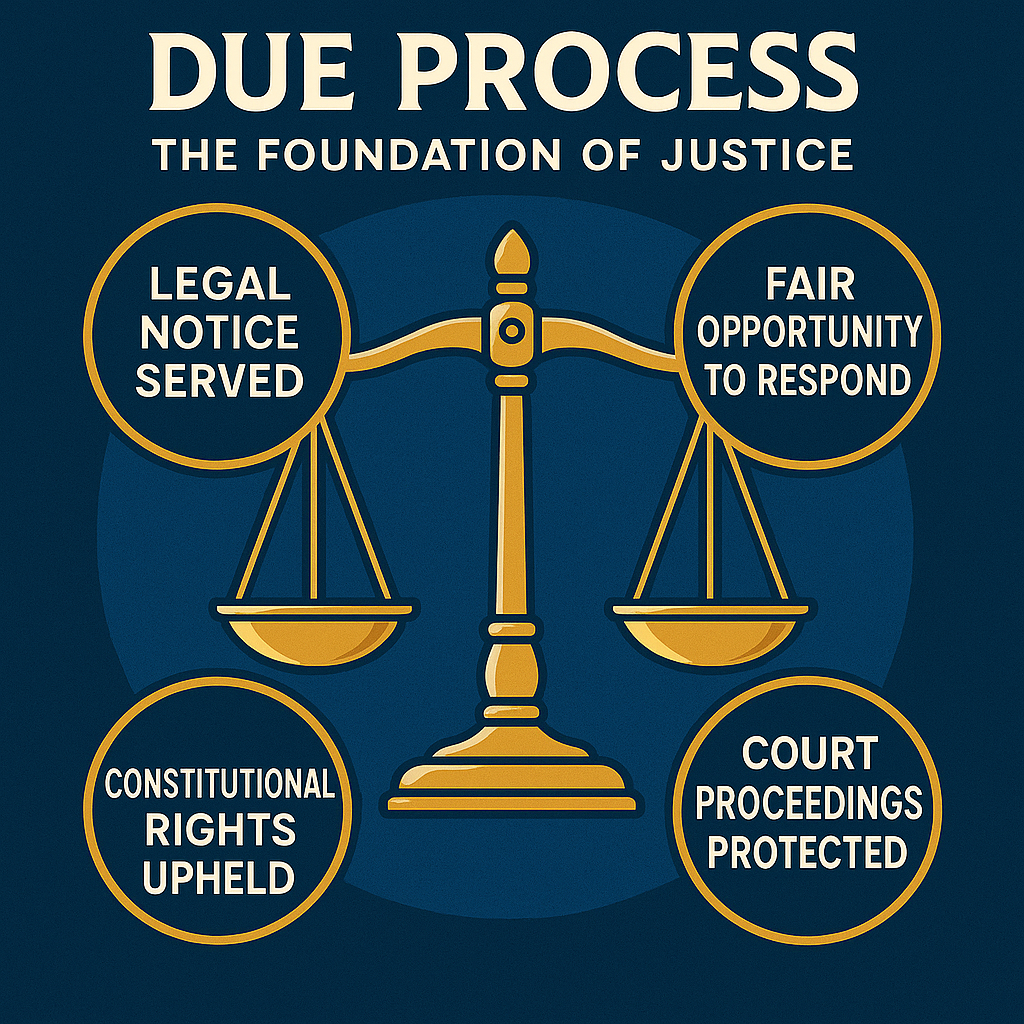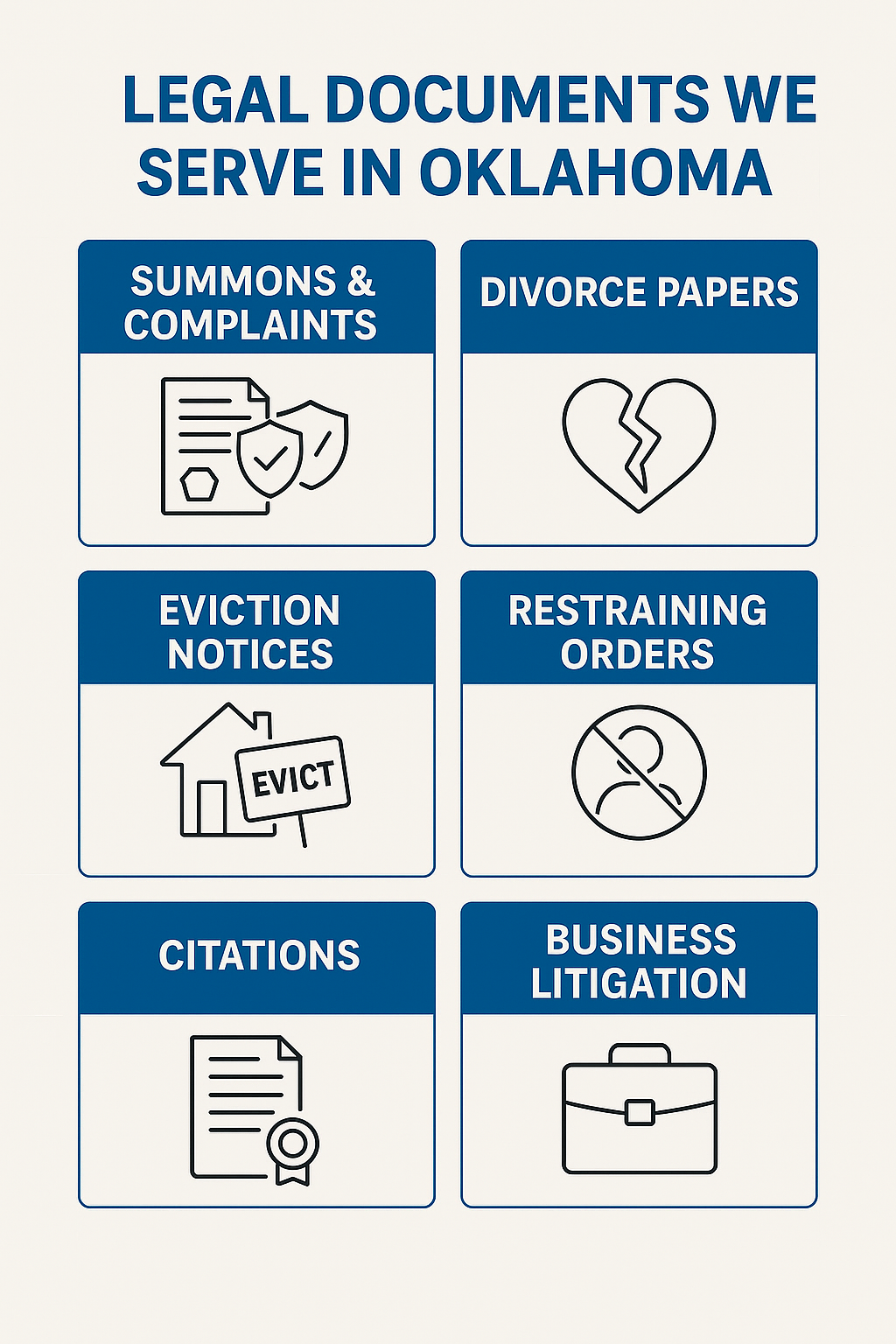Family Law Service: Serving Protective Orders & Divorce Papers in Tulsa County
Serving documents in family law cases requires sensitivity, speed, and strict compliance with Oklahoma statutes. Tulsa County courts demand expedited service for protective orders and accurate service for divorce petitions to protect vulnerable parties and secure jurisdiction. This guide covers statutory requirements, safety protocols, documentation standards, and technology integration for family law service in Tulsa County as of 2026.

1. Protective Order Service Requirements
Emergency Protective Orders (EPO)
- Under 22 O.S. § 60.4, emergency protective orders must be served by law enforcement officers.
- Our role: coordinate with law enforcement agencies, track service status, and ensure timely filing of proof of service.
- Obtain certified EPO signed by the judge and deliver to the appropriate law enforcement agency for service.
- Document service time, officer ID, and agency details.
- File proof of service promptly after law enforcement confirms completion.

Note: Delays in EPO service can jeopardize an applicant's ex parte protections. Prompt coordination with law enforcement is critical.
Temporary & Permanent Protective Orders
- Temporary orders follow similar service timelines.
- Permanent protective orders require personal service within applicable timeframes before the hearing, as set by court order and consistent with 12 O.S. § 2004.
- If personal service fails, the court may authorize alternative methods (publication or certified mail) under 12 O.S. § 2004(D).
- Coordinate with law enforcement for safety; as a firm practice, we use GPS-tagged photos in affidavits for enhanced documentation.
2. Divorce Petition Service Protocols
- Oklahoma divorce petitions must be served under 43 O.S. §113(A) via personal service, acceptance by respondent, or publication after diligent search.
- Verify current address with OSBI, utility records, and credit header
- Attempt service at multiple times/days
- Use notarized affidavit template listing attempts
- Respondent may sign a court-approved acknowledgment of service form (check with the Tulsa County Court Clerk for the current form); ensure notary compliance.
- After exercising due diligence to locate the respondent (which may include multiple attempts at different times and days), court-authorized service by publication in the Tulsa World may be pursued. File proof of publication upon completion.
3. Safety & Risk Assessment
The following are internal firm safety practices used by Just Legal Solutions — they are not statutory requirements.
- Conduct pre-service risk assessment using our internal Lethality Assessment Protocol
- Collaborate with victim advocates and law enforcement as appropriate
- Maintain a two-person team for high-risk service situations
- Use unmarked vehicles and plain clothes when appropriate for server safety

Resource: Tulsa County DV Resource Center contact details should be included in served materials.
4. Documentation & Affidavit Standards
- Server name, badge ID, or private investigator license
- Date, time, location, and recipient description
- GPS coordinates and time-stamped photos (firm practice for enhanced documentation)
- Statements from witnesses (e.g., law enforcement) when applicable
- Use standardized affidavit forms to ensure courts accept them without objection

5. Electronic Service & E-Filing
- Tulsa County supports eService for family law filings under 12 O.S. § 2004.5
- Obtain respondent’s written consent in a verified filing
- Use Court E-Filing system for both filing and service
- Retain delivery receipts, system logs, and email headers
- Backup with personal or mail service if delivery fails
Related Resources
Legal Guides
Need Family Law Process Serving in Tulsa?
Our experienced team handles sensitive family law cases with professionalism and discretion.